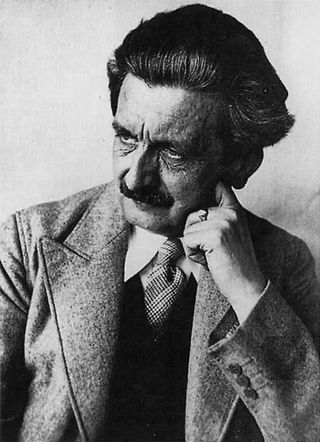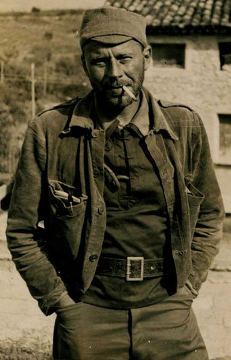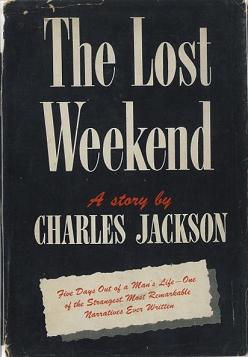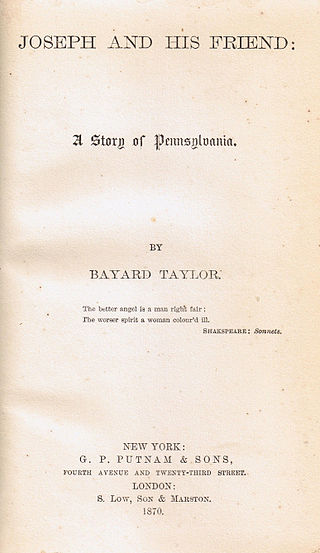Related Research Articles

Edward Morgan Forster was an English author. He is best known for his novels, particularly A Room with a View (1908), Howards End (1910) and A Passage to India (1924). He also wrote numerous short stories, essays, speeches and broadcasts, as well as a limited number of biographies and some pageant plays. His short story "The Machine Stops" (1909) is often viewed as the beginning of technological dystopian fiction. He also co-authored the opera Billy Budd (1951). Many of his novels examine class differences and hypocrisy. His views as a humanist are at the heart of his work.

Eileen Mary Challans, known by her pen name Mary Renault, was a British writer best known for her historical novels set in ancient Greece.

Maurice is a novel by E. M. Forster. A tale of homosexual love in early 20th-century England, it follows Maurice Hall from his schooldays through university and beyond. It was written in 1913–1914 and revised in 1932 as well as 1952–1960. Forster was an admirer of the poet, philosopher, socialist, and early gay rights activist Edward Carpenter and, following a visit to Carpenter's home at Millthorpe, Derbyshire in 1913, was inspired to write Maurice. The cross-class relationship between Carpenter and his working-class partner, George Merrill, presented a real-life model for that of Maurice and Alec Scudder.

LGBTQ themes in speculative fiction include lesbian, gay, bisexual, transgender, or queer (LGBTQ) themes in science fiction, fantasy, horror fiction and related genres.[a] Such elements may include an LGBTQ character as the protagonist or a major character, or explorations of sexuality or gender that deviate from the heteronormative.

Gustav Adolf Franz Brand was a German writer, egoist anarchist, and pioneering campaigner for the acceptance of male bisexuality and homosexuality.

Arthur Annesley Ronald Firbank was an innovative English novelist. His eight short novels, partly inspired by the London aesthetes of the 1890s, especially Oscar Wilde, consist largely of dialogue, with references to religion, social-climbing, and sexuality.

Alvah Cecil Bessie was an American novelist, screenwriter and journalist. He was one of nearly 3,000 American volunteers who joined the Abraham Lincoln Brigade and fought in the Spanish Civil War. He is perhaps best known as a member of the "Hollywood Ten", the group of film artists blacklisted by the entertainment industry for refusing to cooperate with the House Un-American Activities Committee.

Gay literature is a collective term for literature produced by or for the gay community which involves characters, plot lines, and/or themes portraying male homosexual behavior.
Greek love is a term originally used by classicists to describe the primarily homoerotic customs, practices, and attitudes of the ancient Greeks. It was frequently used as a euphemism for both homosexuality and pederasty. The phrase is a product of the enormous impact of the reception of classical Greek culture on historical attitudes toward sexuality, and its influence on art and various intellectual movements.

The Lost Weekend is Charles R. Jackson's first novel, published by Farrar & Rinehart in 1944. The story of a talented but alcoholic writer was praised for its powerful realism, closely reflecting the author’s own experience of alcoholism, from which he was temporarily cured. It served as the basis for the classic 1945 Oscar winning film adaptation.

Forman Brown was one of the world's leaders in puppet theatre in his day, as well as an important early gay novelist. He was a member of the Yale Puppeteers and the driving force behind Turnabout Theatre. He was born in Otsego, Michigan, in 1901 and died in 1996, two days after his 95th birthday. Brown briefly taught at North Carolina State College, followed by an extensive tour of Europe.

Gay pulp fiction, or gay pulps, refers to printed works, primarily fiction, that include references to male homosexuality, specifically male gay sex, and that are cheaply produced, typically in paperback books made of wood pulp paper; lesbian pulp fiction is similar work about women. Michael Bronski, the editor of an anthology of gay pulp writing, notes in his introduction, "Gay pulp is not an exact term, and it is used somewhat loosely to refer to a variety of books that had very different origins and markets". People often use the term to refer to the "classic" gay pulps that were produced before about 1970, but it may also be used to refer to the gay erotica or pornography in paperback book or digest magazine form produced since that date.

Lesbian literature is a subgenre of literature addressing lesbian themes. It includes poetry, plays, fiction addressing lesbian characters, and non-fiction about lesbian-interest topics. A similar term is sapphic literature, encompassing works that feature love between women that are not necessarily lesbian.

Just Above My Head is James Baldwin's sixth and last novel, first published in 1979. He wrote it in his house in Saint-Paul-de-Vence, France.

Joseph and His Friend: A Story of Pennsylvania is an 1870 novel by American author Bayard Taylor, a prolific writer in many genres. It presented a special attachment between two men and discussed the nature and significance of such a relationship, romantic but not sexual. Critics are divided in interpreting Taylor's novel as a political argument for homosexual relationships or an idealization of male spirituality.
In Mexican culture, it is now relatively common to see gay characters represented on Mexican sitcoms and soap operas (telenovelas) and being discussed on talk shows. However, representations of male homosexuals vary widely. They often include stereotypical versions of male effeminacy meant to provide comic relief as well as representations meant to increase social awareness and generate greater acceptance of homosexuality. However, efforts to represent lesbians have remained nearly non-existent, which might be related to the more general invisibility of lesbian subcultures in Mexico.
John Stewart Wynne is an American author of novels, short stories and poetry, as well as a Grammy-nominated producer of spoken word recordings.

Harry Burnett was the designer of the Yale Puppeteers. He was also a mask creator. In Better Angel, Forman Brown's early gay novel, he is Derry.

Lost Gay Novels is a 2003 reference guide written by Anthony Slide that provides commentary on 50 works of gay literature published between 1900 and 1950 that Slide found to be not well known by late 20th and early 21st-century audiences.
References
- 1 2 Slide, Anthony (2003). Lost Gay Novels: A Reference Guide to Fifty Works from the First Half of the Twentieth Century. Routledge. p. 127. ISBN 9781560234142.
- ↑ Carey, Christopher (2012). Trials from Classical Athens. Routledge. p. 484.
- ↑ Hallock, John W.M. (2000). American Byron: Homosexuality & The Fall Of Fitz-Greene Halleck. University of Wisconsin Press. p. 163.
- 1 2 3 4 5 Slide, Anthony (2003). Lost Gay Novels: A Reference Guide to Fifty Works from the First Half of the Twentieth Century. Routledge. p. 128. ISBN 9781560234142.
- ↑ Jordan, Mark D. (2011). Recruiting Young Love: How Christians Talk about Homosexuality. University of Chicago Press. p. 48.
- ↑ Bessie, Dan (2012). Rare Birds: An American Family. Untreed Reads. p. ?. ISBN 9781611872606.
- 1 2 3 Serafin, Alfred Bendixen (2005). The Continuum Encyclopedia of American Literature. Continuum.
- 1 2 Jordan, Mark D. (2011). Recruiting Young Love: How Christians Talk about Homosexuality. University of Chicago Press. pp. 22–5.
- ↑ Bessie, Dan (2012). Rare Birds: An American Family. Untreed Reads. p. ?. ISBN 9781611872606.
- ↑ Walling, Donovan R (2003). "Gay- and Lesbian-Themed Novels for Classroom Reading". Journal of Gay & Lesbian Issues in Education. 1 (2): 97–108 [103]. doi:10.1300/J367v01n02_12. S2CID 158993807.